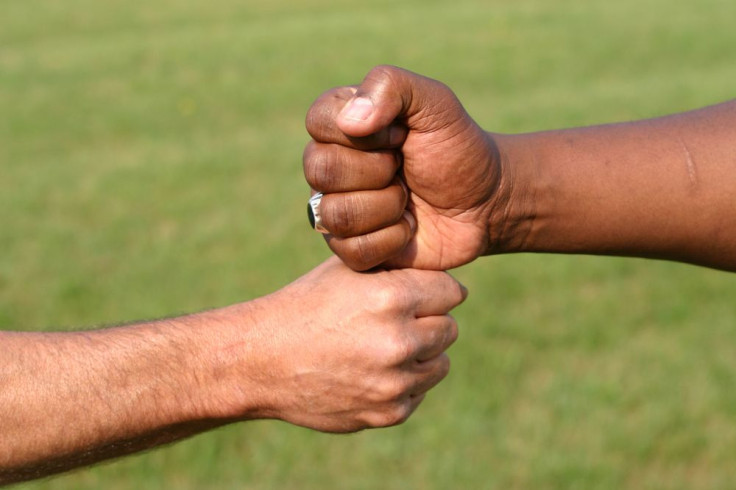Handshakes Transmit Bacteria, Fist Bumps Are Better; But Washing Hands Is Always Best

Around 2800 B.C., death awaited the man who failed to shake hands upon greeting someone. These ancient renditions of the handshake were meant not only to greet someone, but to check their arms for hidden weapons — this explains why we shake with our right hands. Fast-forward a few thousand years, and we’re still shaking hands, but with much more civil intentions. Nevertheless, the next person you shake hands with may be carrying a different type of weapon: infectious bacteria.
Researchers from Aberystwyth University-Ceredigion in the UK show in a new study that the amount of bacteria passed from one sweaty person’s hand to another through a handshake may be cause for concern — or at least enough to warrant the beginning of a fist-bumping era. “A short, sweet fist bump will transmit the least bacteria,” said study author David Whitworth, a senior lecturer at the university, according to USA Today. Even a high-five is better than a full-on, hands-locked-tight handshake.
The researchers’ novel study involved two experiments. The first was conducted with the help of sterile gloves and a box full of Escherichia coli. With the gloves on, one of the scientists dipped their hands into the box repeatedly, making sure the glove was covered in the infectious bacteria — this one was on the less-dangerous side. Once the glove dried, the scientist then fist-bumped, high-fived, and shook the hands of another scientist who was wearing clean gloves. When these gloves were tested, the researchers found that a handshake passed on about 10 times more bacteria than a fist bump, and about two times more than a high five.
In a separate test, the researchers observed the surface area contact between two hands when performing the various greetings. By dipping their gloves in paint, the researchers saw that shaking hands caused contact in a much larger area than a high five or fist bump. Moreover, the researchers found that handshakes tended to last longer, increasing the amount of time transmission could take place.
Though most of us don’t go around looking for E. coli to dip our hands into, the fact remains that many of us just aren’t as hygienic as we believe or hope to be. A study from last year found that only five percent of people washed their hands thoroughly after leaving a public bathroom. A certain number of these people will then get sweaty palms, and, while leaving a room, twist a presumably copper doorknob. Their sweaty palms, however, will counteract the antimicrobial properties of copper, allowing the bacteria to live until another person’s hand makes contact. Then, the cycle continues.
The emphasis must be placed on washing hands, especially in health care settings, where these germs are passed around easily. With almost 40 percent of doctors worldwide failing to wash their hands, according to a World Health Organization report. Because of this, health experts have been pushing for a ban on handshakes in health care settings. “In a hospital, you really don’t want people to shake hands. It’s an unnecessary risk,” Whitworth said, according to Fox News. Your child may be getting treated for a burn, but after a talk with his doctor and a simple goodbye handshake, you may find yourself battling at least a stomach virus or the flu.
Chances are the handshake will never go away. But the new research will hopefully push people to make wiser decisions when it comes to the things and people they touch. “People rarely think about the health implications of shaking hands,” Whitworth said in a press release. “If the general public could be encouraged to fist bump, there is a genuine potential to reduce the spread of infectious diseases.”
Source: Mela S, Whitworth D. The fist bump: A more hygienic alternative to the handshake. American Journal of Infection Control. 2014.



























